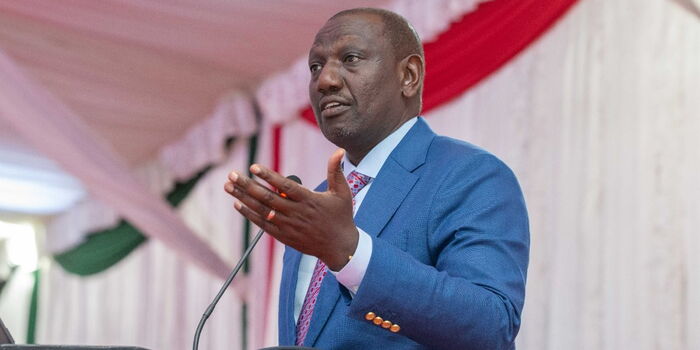President William Ruto is in a difficult position over his tax bill, even though he has offered to negotiate with protesters.
Kenyan youth, particularly from Generation Z, have been leading protests against the proposed Finance Bill 2024 through an X space dubbed "Occupy Parliament." They demand the bill's total withdrawal or its complete rejection by MPs to end their demonstrations.
The Finance Bill 2024 is set to enter the Committee Stage on Tuesday, where members of the National Assembly will consider and vote on amendments clause by clause. Ahead of the crucial vote, protesters are mobilizing to hit the streets on Tuesday and continue until the MPs hold their final sitting on the bill, if it is not rejected at the Third Reading.
Option 1: Push for Promised Amendments
One option for the president is to push for the amendments his government has already promised, ignoring the protesters' demands for a complete withdrawal. Last Tuesday, President Ruto chaired a parliamentary group meeting of his Kenya Kwanza government at State House, announcing several concessions.
The Finance and National Planning Committee Chairperson, Kimani Kuria, stated that he would move amendments to the bill as presented by the National Treasury. These amendments include repealing the contentious 2.5 percent motor vehicle circulation tax, value-added tax on bread, and excise duty on edible oil after public outcry. The government also proposed pausing a plan to give the Kenya Revenue Authority unfettered access to people’s mobile money and banking details without a court warrant.
With a majority in the National Assembly, the president can easily have these amendments approved when MPs meet in the committee stage on Tuesday. The bill was approved by MPs last Thursday at the Second Reading, with 204 voting in favor and 115 against.
Option 2: Defer the Bill
MPs can defer or call off the bill’s Third Reading after the committee stage through a simple majority vote. If President Ruto decides to yield to public pressure, he can lobby MPs to defer the Third Reading Stage. The Kenya Law Reform Commission says deferring a bill at this stage is technically “killing the bill,” as it would take six months to reintroduce it with new provisions.
If MPs choose this route, it would be unprecedented for such a significant bill. The government could continue collecting revenue based on the Finance Act 2023 if the Finance Bill 2024 is deferred. Renowned economist and former Mandera Senator Billow Kerrow stated that deferring or rejecting the bill would not lead to a government shutdown. The Finance Bill 2024 aims to raise an additional Sh346 billion, but the Kenya Revenue Authority would still collect the targeted Sh3.4 trillion less the Sh346 billion.
However, if the Finance Bill is deferred or rejected, the government will be unable to legislate the Appropriation Act 2024. The High Court ruled that revenue-raising measures must be approved before introducing the Appropriation Bill. The government can access about half of the currently approved spending estimates in this scenario.
Option 3: Allow New Amendments
President Ruto could whip his parliamentary troops to approve specific proposals by MPs representing dissatisfied Kenyans. The opposition coalition, Azimio la Umoja, asked its MPs to propose amendments to the bill, which they deemed punitive. Last year, Azimio's attempt to frustrate the Finance Bill failed despite a spirited effort by Minority Leader Opiyo Wandayi-led MPs to block it.
One of Azimio's amendments is to repeal the 10 percent of clinkers used to make cement, which they claim hinders development. They also want the export promotion tax and the increase of the fuel levy by Sh9 per liter dropped from the bill. The president could decide to allow these opposition amendments to pass, easing public anger over the Finance Bill 2024.
Option 4: Abandon Proposed Tax Measures
President Ruto might consider dropping the new tax measures aimed at raising an additional Sh346 billion. In this scenario, the government could resort to borrowing to fill the budget gap and meet its spending plans. Alternatively, the government could focus on prudence and efficiency in non-essential expenditures while investing in maximizing revenue generation within the current law. Traditionally, the government has opted for new revenue measures to finance its budget.
Conclusion
President Ruto faces tough decisions regarding the Finance Bill 2024. Whether he opts for pushing promised amendments, deferring the bill, allowing new amendments, or abandoning the proposed tax measures, each option comes with significant political and economic implications. The outcome of the Committee Stage on Tuesday will be crucial in determining the bill’s future and the government's response to public discontent.

